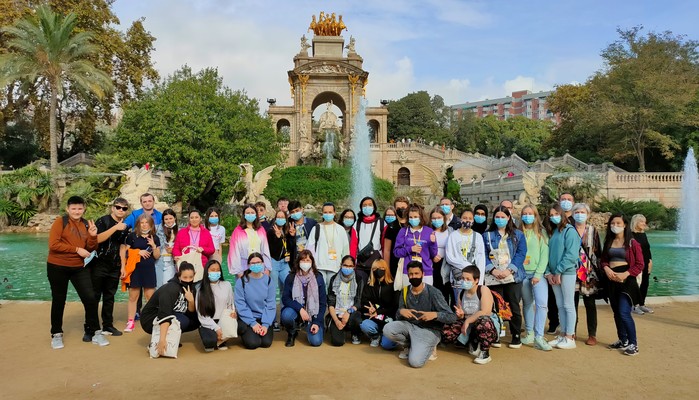Barcelona, Spain (25-29 October 2021)
Barcelona week schedule.pdf
These are the activities we carried out during our third transnational meeting (our first after the start of the pandemic, which led to some changes in the activities).
Our emphasis was on social change, civic engagement, multiculturality and, last but not least, the book The Giver and one of its main topics: the importance for societies to remember their history, both common and local.
Most of the activities were held in the open air, when it was possible, and some were also implemented in our library, making sure all the safety measures were met (ventilation and hand sanitising).
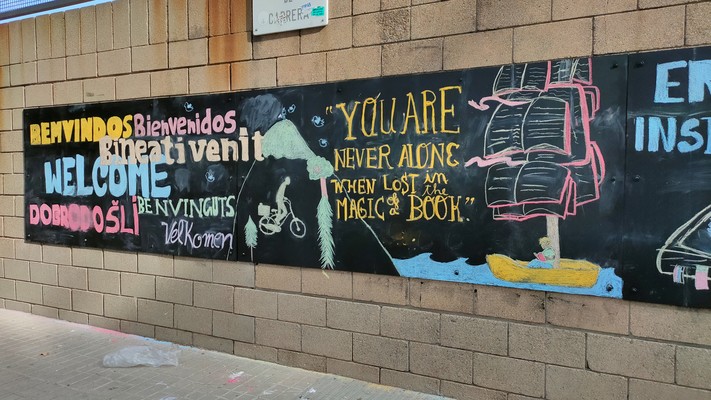
Monday, October 25th:
- Project introduction and quiz (Kahoot) on social change, civic engagement and multiculturality.
- Introduction to our school and tour of the premises.
- Beginner lessons and ice breakers in Catalan: After a brief introduction by two teachers in English, about how two main languages and many different cultural communities coexist in Catalonia, the hosting students, helped by students from our Aula d’Acollida (our foreign newcomer class, where new foreign students are taught Spanish and Catalan) taught their guests some easy expressions and idioms in Catalan, and afterwards they started easy-level ice-breakers using the language, and comparing the expressions with their counterparts from the rest of the original languages of our guests.
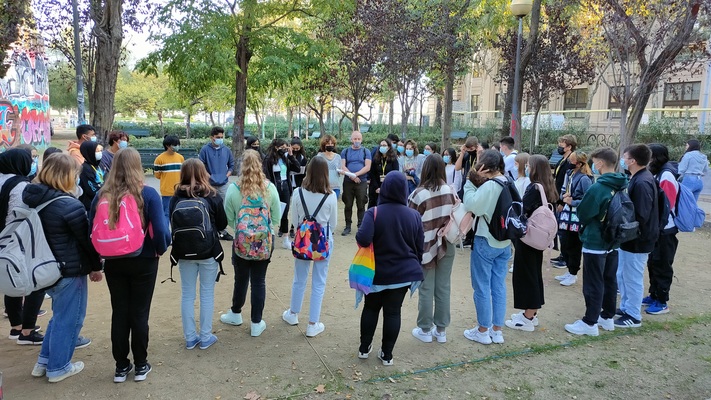
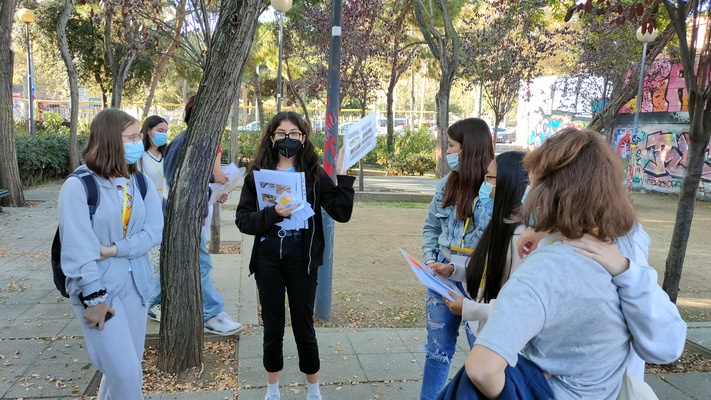
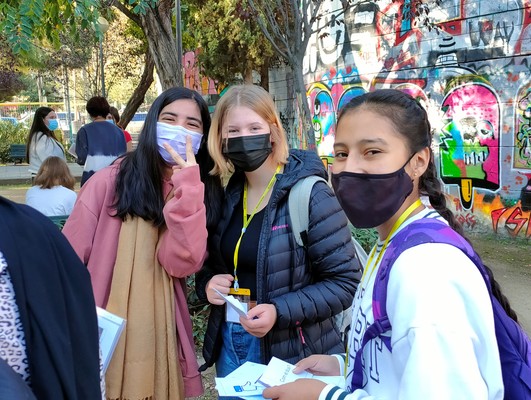
- Presentations on each of the guest countries’ modern and contemporary history, focusing on key events such as War World II, terrorist attacks, natural disasters, migration, the changes from the communist to the capitalist economy and the impact of the pandemic. They finally talked about how these memories are perceived and preserved in their countries.
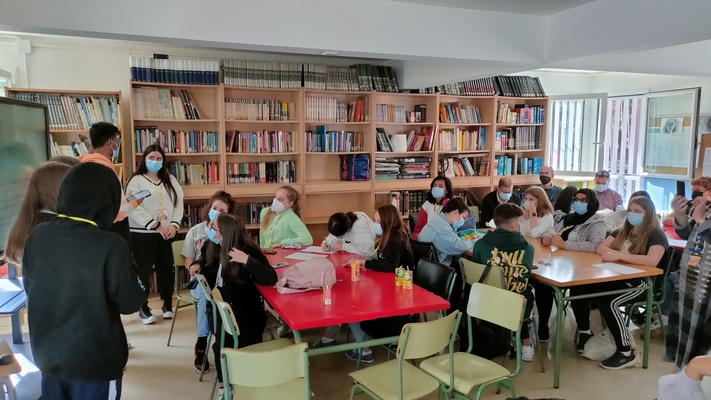
- Presentation on the foreign influence on the Rambles throughout history and the impact of modern tourism, and on how our school’s district is losing its original cultural characteristics due to mass tourism. Students reflected upon how to make tourism more local-friendly, analysed the impact of tourism on their own areas and compared it to ours.
the rambla.pptx
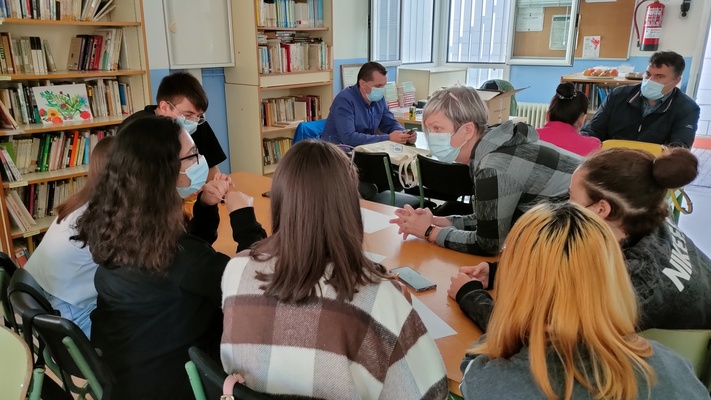
- Tour of the Gothic Quarter: we saw how the coming of different cultural communities and historic events shaped the central area of Barcelona as we know it today.
Tuesday, October 26th:
- Guided tour of Palau Güell, focusing on how the industrial revolution brought about important social changes to the city of Barcelona, as the emergence of an industrial bourgeoisie, committed to preserving the nation's culture but also conditioning the lives of the lower classes and disregarding their social rights.
- Ice breakers: Joining parts of sentences and joining partners. Each student and teacher has a part of a sentence, beginning or end, and they must find the other student or teacher that completes their sentence. Their topic is "Living together".
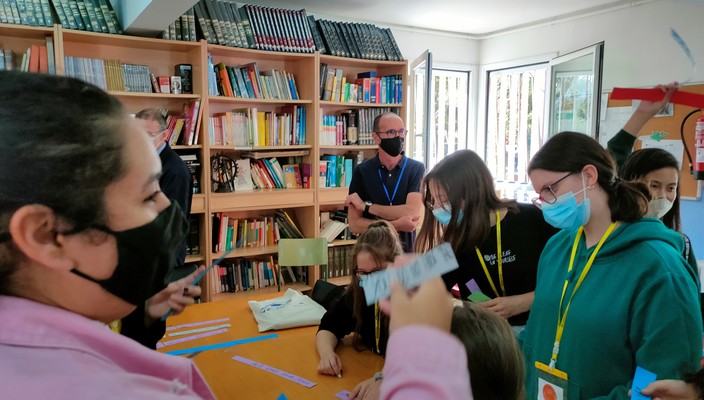
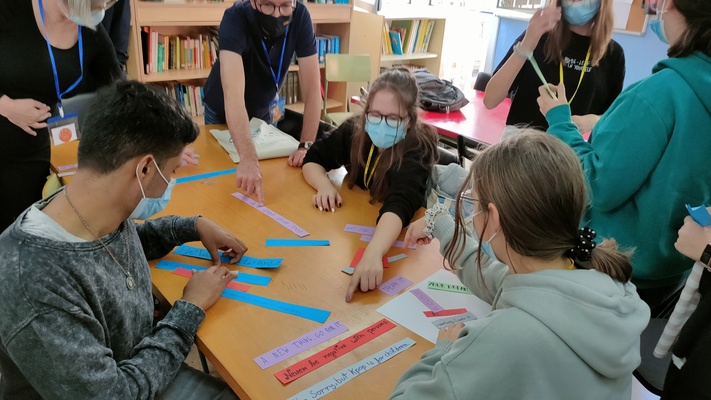
- Civic engagement activities: A historian told the students about Catalonia’s recent history: the independence referendum and its outcome, telling htem also about the historical reasons that led to the current situation, and how the different communities perceive these phenomena. Finally, every group of students wrote letters to political prisoners, which they later read to the rest of the teams.
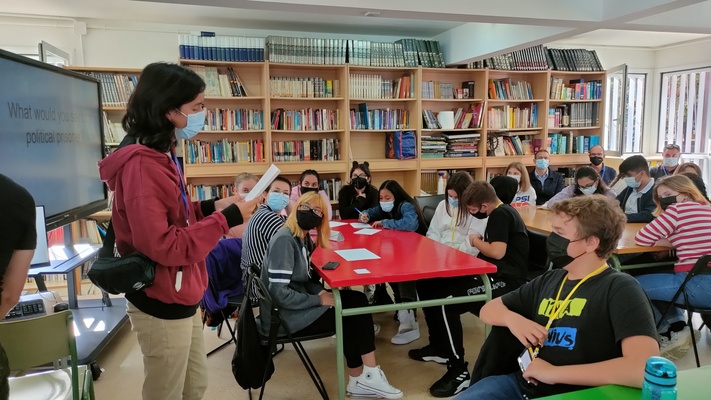
A letter to a political prisoner (Ángel, Simran, Tella, Pia, Darius, Paola).docx
- A chat with a Pro-Activa Open Arms NGO representative: students got the chance to learn and ask questions about how the organisation works, how they rescue migrants in the Mediterranean and how we disregard their human rights.
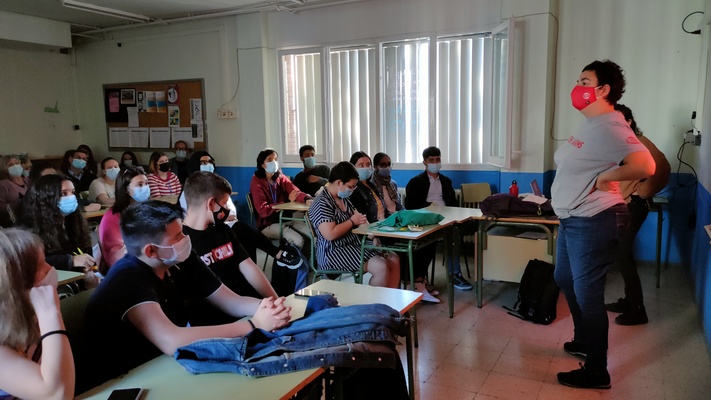
Wednesday, October 27th
- Activities on The Giver (kahoot quiz, exercises): Students were invited to reflect on family relationships in the book, and the importance of preserving memories, both a community's and an individual's. Finally, students had to enact the book's "memory transmission", by "transmitting" a dear memory of theirs to their peers.
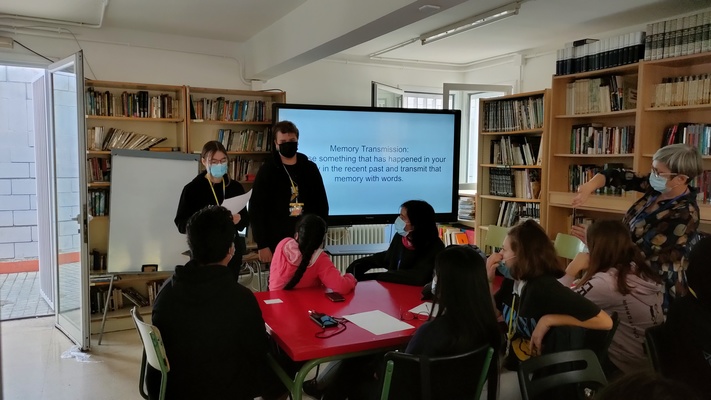
- Activities on social change: the Columbus monument and restorative memory action. We introduced the students to the concept of "restorative memory" and to activism in Barcelona wishing to demolish the statue of Christopher Columbus. Every team had to discuss whether they would prefer to have it taken down, as it is a symbol of the oppression of many indigenous communities and slavery, or to leave it where it is as a symbol of a historical phenomenon.
columbus.pptx
- Guided tour of Sant Pau Hospital, a site for research and charity. Early 20th centuy concepts of "cooperation": the guides were requested to emphasise the fact that the hospital had been created as a token of charity from the wealthy classes to treat the poor who did not have access to health services, whereas it took that opportunity experimented with new technologies and methods.
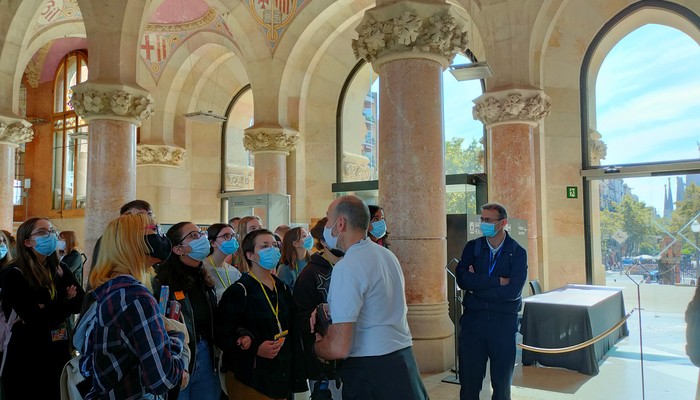
- Book crossing in the Sagrada Família area: All countries had brought books in their original languages. Together with our books in English, Catalan and Spanish, they were left by the students in public sites both in the Sagrada Família area and later on in the vicinity of our school. The purpose was to increase the community's literacy, foster the learning of foreign languages and reading for pleasure, and inviting anyone who was interested to our multicultural reading club.
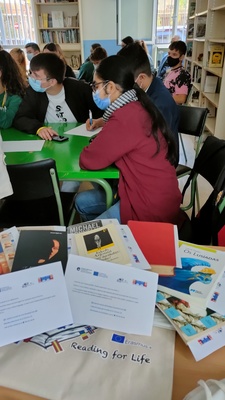
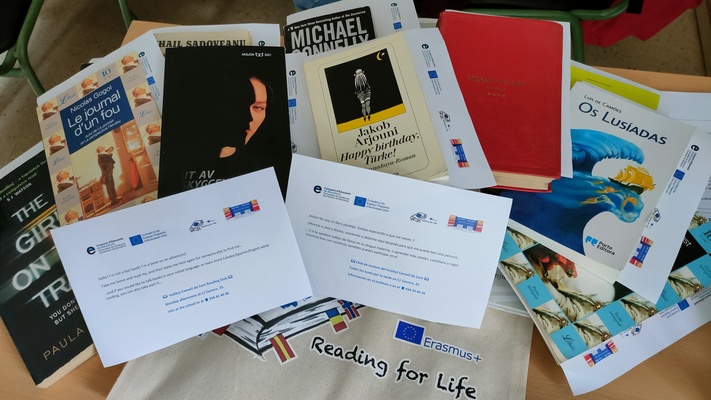
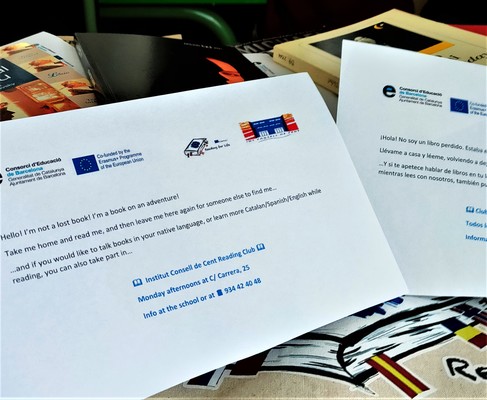
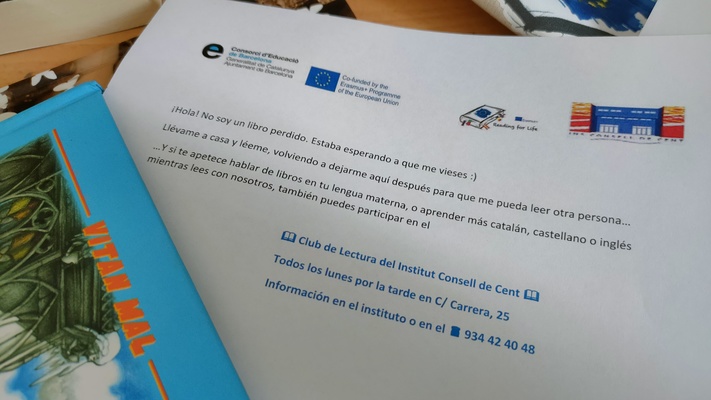
bookcrossing card English.docx
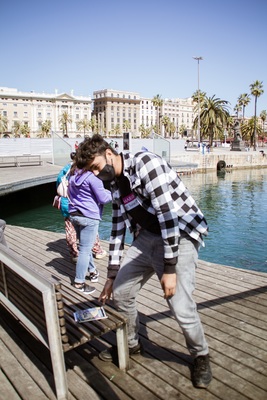
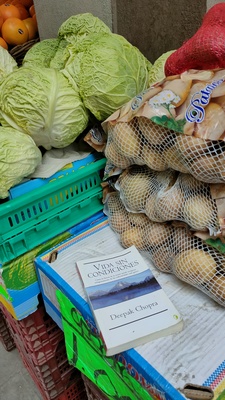
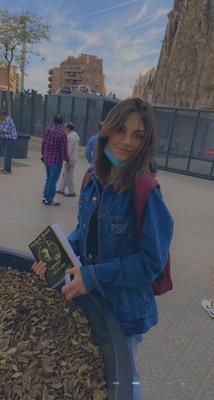
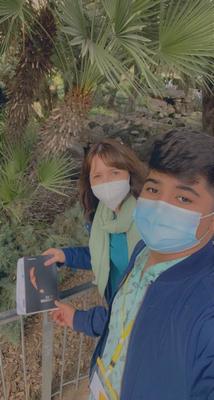
Thursday, October 28th
- Cultural diversity at our school: Pakistan and The Philippines: Our students whose families are originally from those countries talked to the rest of the group about them, and about how they experienced being a member of those communities in Barcelona.
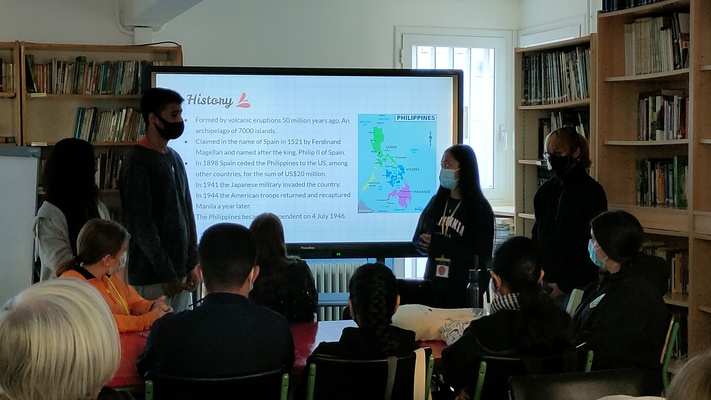
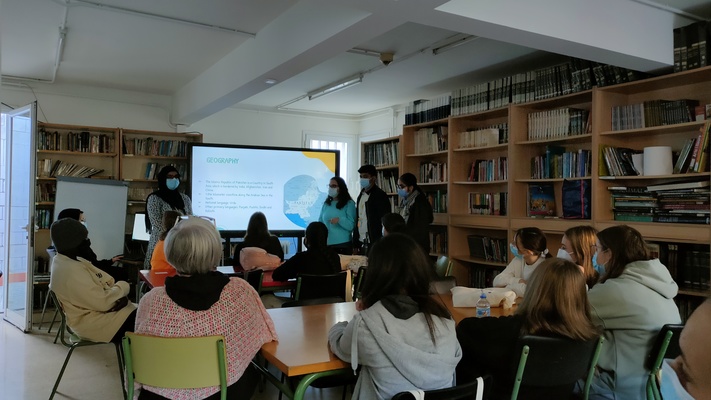
- Tour of Montjuic Hill: An International Exhibition was held here in 1929 that defended solidarity among all countries. However, it was the stage for much injustice. We tackled those issues in the outdoor activities:
- Exercise on genetics and racism: students had to exchange their impressions on this video, where it is revealed that we are only part on one single human race: The DNA Journey
- Restorative history workshop 1: honouring the memory of the so-called "witches". Students had to device ways of making the present-day population aware of all the cruelties and injustices done to the so-called "witches".
- Restorative history workshop 2: honouring educationist Ferrer i Guàrdia. He was executed by the government in 1919 on the hill where we were right then. The reason was his compromise to ban religion and any kind of punishment and discrimination by gender in the school. The students put in order some words to recreate several quotations about the regenerative nature of education, and made their way to where Ferrer's memorial monument is, and left their quotations there as a token of respect for everything he did for the advancement of non-discriminative education throughout the world.
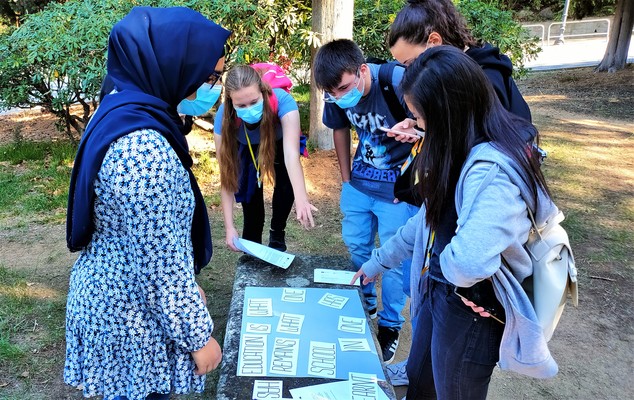
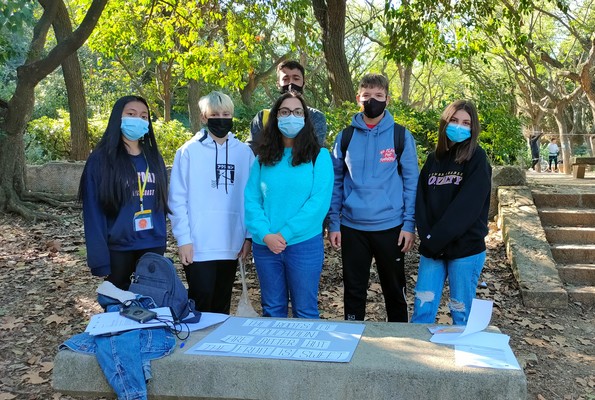
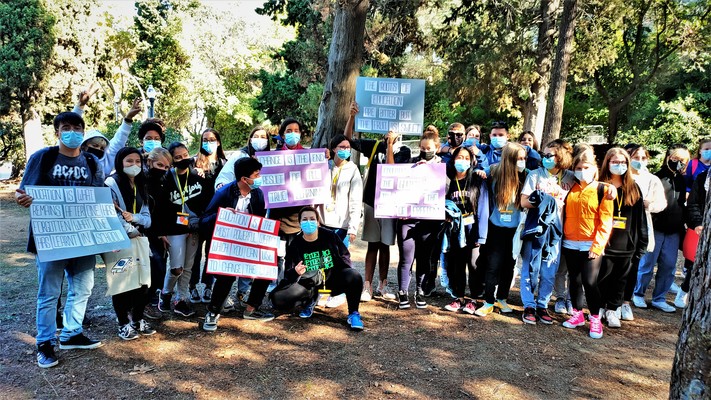
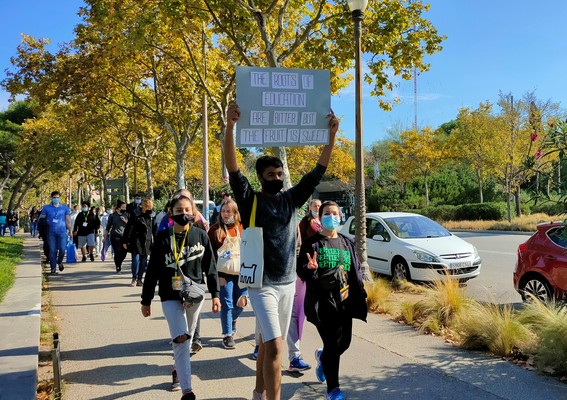
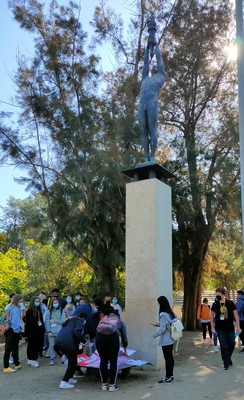
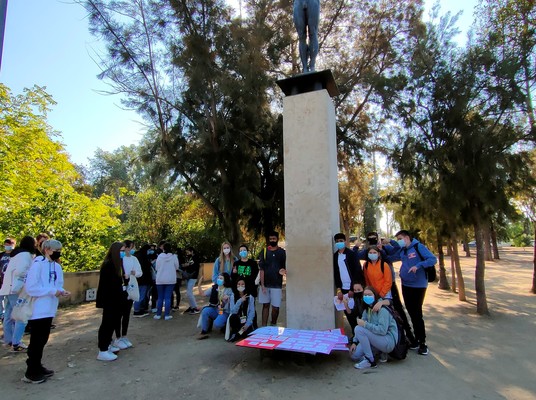
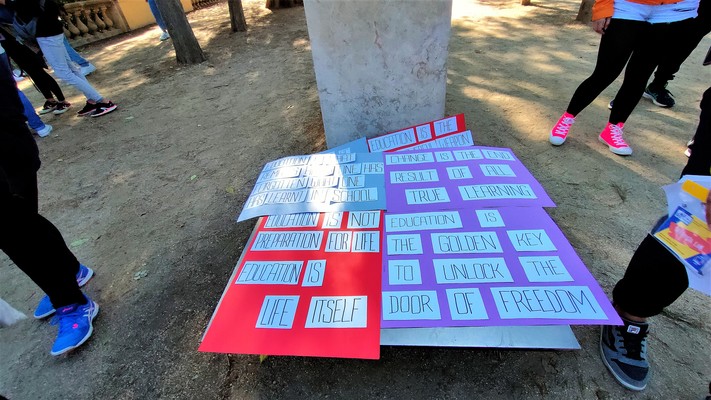
- Certificate giving ceremony and photography awards
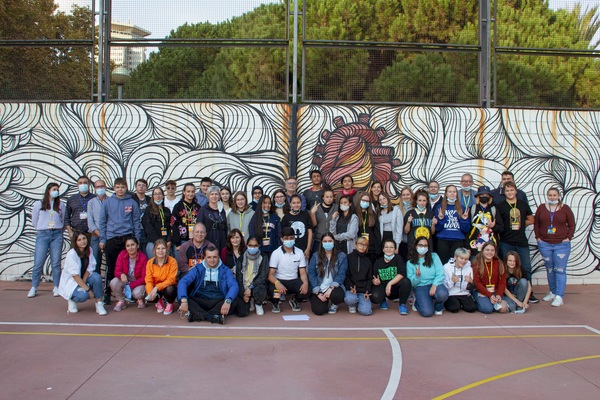
Friday, October 29th
- “My experience in Barcelona” workshop: all the students left drawings, stuck stickers and wrote messages of farewell and gratefulness on the school’s walls.
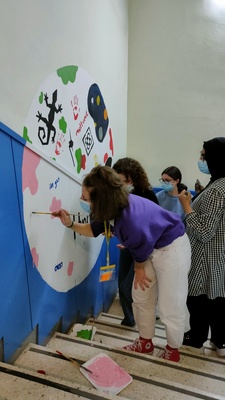
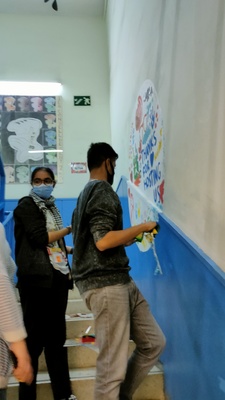
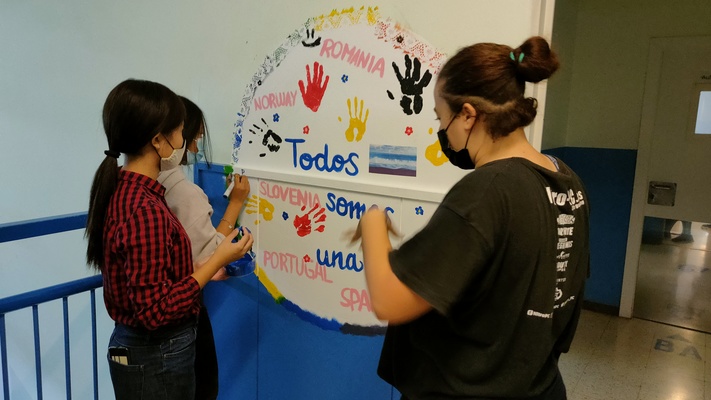
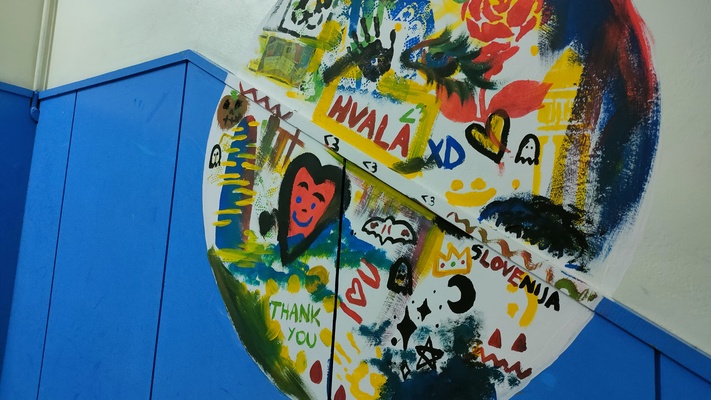
- Tour of Parc de la Ciutadella
